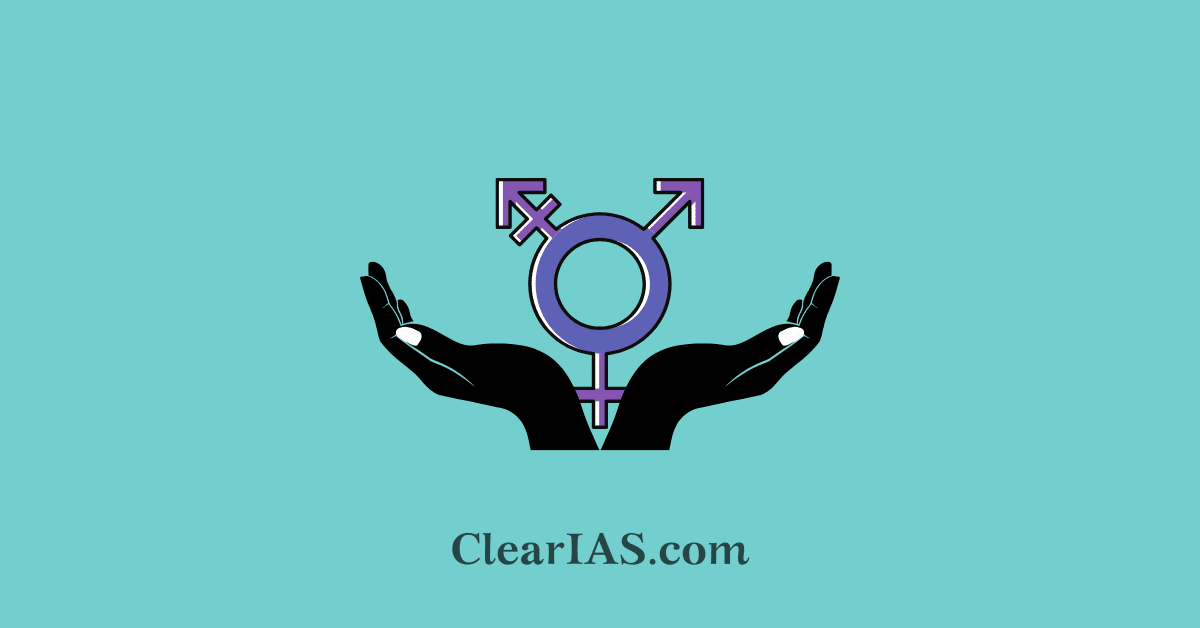
The global movement toward gender-affirming care (GAC) has gained momentum as governments, public health agencies, and human rights organisations recognise that affirming care is not elective but essential for mental health and well-being. Read here to learn more.
Over the past decade, India has made notable legal strides in recognising the rights and dignity of transgender and gender-diverse individuals.
Landmark moments such as the NALSA v. Union of India (2014) judgment, which affirmed the right to self-identify one’s gender, and the Transgender Persons (Protection of Rights) Act, 2019, have marked progress toward inclusion.
However, beyond legal reforms, transgender and non-binary individuals continue to face severe social exclusion, discrimination, and mental health disparities, pointing to an urgent need for gender-affirming mental healthcare across the country.
The Mental Health Crisis in Transgender Communities
Despite constitutional protections, transgender people in India remain among the most marginalised groups:
- High rates of depression, anxiety, and suicide: Studies show that nearly 31% of transgender individuals in India have attempted suicide, with half of them before age 20.
- Social alienation: Widespread stigma, family rejection, and barriers in education and employment foster chronic stress and trauma.
- Violence and abuse: Transgender persons face daily threats, from harassment and assault to housing discrimination, which compounds mental distress.
- Healthcare neglect: Most health facilities lack trained professionals or inclusive environments, deterring trans individuals from seeking help.
Mental health struggles in these communities are not inherent but the direct outcome of systemic barriers, social exclusion, discrimination, and lack of access to affirming care.
What is Gender-Affirming Care (GAC)?
Gender-Affirming Care is an umbrella term for medical, psychological, and social support that helps individuals live in accordance with their gender identity. It includes:
- Psychosocial support: Counselling, peer networks, and support groups.
- Social affirmation: Using correct names, pronouns, and identities in institutions.
- Medical interventions: Hormone therapy, puberty blockers, and gender-affirming surgeries.
- Legal and administrative support: Assistance in changing identity documents and ensuring access to healthcare without discrimination.
Contrary to misconceptions, GAC is not cosmetic or elective; it is a medically necessary intervention that directly impacts mental and physical well-being.
Gender-Affirming Care and Mental Health
Extensive global research has established that access to GAC reduces psychological distress and improves life outcomes:
- Studies in JAMA Network Open and Andrology show that individuals receiving hormone therapy or surgical care report lower rates of depression, anxiety, and suicidal thoughts.
- GAC has been found to reduce dependence on crisis services and foster greater social functioning, self-esteem, and resilience.
- Denying access, conversely, is associated with heightened dysphoria, psychological trauma, and substance abuse.
Thus, gender-affirming care is a form of mental health care; it affirms identity, restores dignity, and prevents avoidable suffering.
Barriers to Gender-Affirming Mental Healthcare in India
- Policy Gaps and Bureaucratic Hurdles: Despite the 2019 Act, many states lack guidelines or insurance coverage for gender-affirming treatments.
- Limited Trained Professionals: Few mental health professionals in India receive training on gender diversity or trans-affirming counselling practices.
- Stigma in Healthcare Settings: Trans people often face ridicule, misgendering, or outright denial of services, eroding trust in medical systems.
- Economic Marginalisation: High unemployment and exclusion from formal work make GAC financially inaccessible for many.
- Urban-Rural Divide: Access to specialised services remains concentrated in metropolitan areas, leaving vast rural populations without adequate care.
Way Forward: Building an Inclusive Mental Health Framework
- Integration into National Mental Health Policy: The National Mental Health Programme (NMHP) and Ayushman Bharat must explicitly include gender-diverse populations.
- Capacity Building: Medical and psychology curricula should include gender identity and trans-affirmative practices to train inclusive professionals.
- Insurance and Subsidies: Ensure public and private insurance schemes cover gender-affirming interventions as essential, not elective, services.
- Community-Based Interventions: Partner with NGOs and trans-led collectives to offer localised peer support and awareness programs.
- Research and Data Collection: Develop national databases to assess health needs, outcomes, and disparities among gender-diverse groups.
- Legal and Administrative Reforms: Simplify name and gender change procedures and enforce anti-discrimination laws in health and employment.
Conclusion
True mental health equity cannot be achieved without recognising and addressing the specific needs of transgender and gender-diverse people.
India’s progress toward equality will remain incomplete until every person, regardless of gender identity, can access safe, affirming, and dignified care.
Gender-affirming care is not a luxury; it is a human right and an essential step toward building a society grounded in compassion, inclusion, and justice.
By embracing this framework, India can transform its healthcare system into one that heals, not harms, its most vulnerable citizens.
Related articles:






Leave a Reply